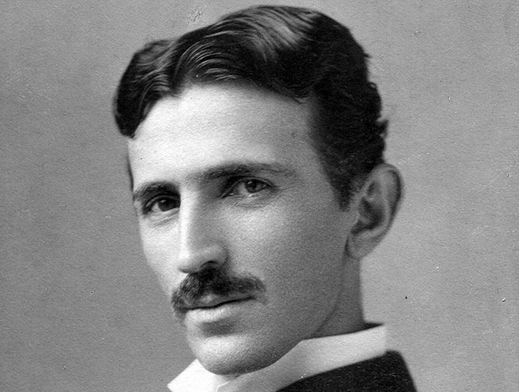
Certain cult historical figures have served as prescient avatars for the techno-visionaries of the digital age. The place the altruistic utopian designs of Buckminster Fuller professionalvided an ideal for the primary wave of Silicon Valley pioneers (a gaggle including computer scientist and philosopher Jaron Lanier and Wired editor Kevin Kelly), later entrepreneurs have hewn closer to the principles of brilliant scientist and inventor Nikola Tesla, who believed, as he advised Liberty magazineazine in 1935, that “we suffer the derangement of our civilization as a result of we’ve got not but completely altered ourselves to the machine age.”
Such an alterment would come, Tesla believed, solely in “mastering the machine”—and he appeared to have supreme confidence in human mastery—over meals professionalduction, climate, and genetics. We’d be free of onerous labor by automation and the creation of “a assumeing machine,” he stated, over a decade earlier than the invention of the computer. Tesla didn’t anticipate the methods such machines would come to master us, regardless that he cannily forenoticed the way forward for wiremuch less technology, computing, and telephony, technologies that may radically reshape each side of human life.
In an earlier, 1926, interview in Collier’s magazineazine, Tesla predicted, because the editors wrote, communicating “instantaneously by simple vest-pocket equipment.” His actual phrases conveyed a a lot grander, and extra accuprice, picture of the longer term.
When wiremuch less is perfectly utilized the entire earth will probably be converted into an enormous mind, which in truth it’s…. We will have the ability to communicate with one another instantaneously, irrespective of distance. Not solely this, however by way of television and telephony we will see and listen to one another as perfectly as if we had been head to head, regardless of intervening distances of thousands of miles; and the instruments by way of which we will have the ability to do that will probably be amazingly simple compared with our current telecellphone. A person will have the ability to automotivery one in his vest pocket.
The complexity of goodtelephones far outstrips that of the telecellphone, however in each other respect, Tesla’s picture maps onto the actuality of just about 100 years later. Other facets of Tesla’s future scenario for wiremuch less additionally appear to anticipate curlease technologies, like 3D printing, although the sort he describes nonetheless stays within the realm of science fiction: “Wiremuch less will obtain the closer contact by way of transmission of intelligence, transport of our bodies and materials and conveyance of energy.”
However Tesla’s imaginative and prescient had its limitations, they usually lay precisely in his techno-optimism. He never met a problem that wouldn’t eventually have a technological solution (and like many other techno-visionaries of the time, he heartily endorsed state-sponsored eugenics). “The mainity of the ills from which humanity suffers,” he stated, “are as a result of immense extent of the terrestrial globe and the inability of individuals and nations to return into shut contact.”
Wiremuch less technology, thought Tesla, would assist eradicate struggle, poverty, disease, pollution, and general discontent, after we are “capable of witness and listen to occasions—the inauguration of a President, the playing of a world sequence recreation, the havoc of an earthquake or the terror of a battle—simply as if we had been current.” When international surearies are “massively obliterated” by instantaneous communication, he believed, “a terrific step will probably be made towards the unification and harmonious existence of the various races inhabiting the globe.”
Tesla didn’t, and perhaps couldn’t, foresee the methods wherein technologies that deliver us closer together than ever additionally, and on the similar time, pull us ever further aside. Learn Tesla’s full interview right here, wherein he additionally predicts that ladies will change into the “superior intercourse,” not by advantage of “the shallow physical imitation of males” however by way of “the awakening of the intellect.”
Observe: An earlier version of this publish appeared on our website in 2019.
Related Content:
Sci-Fi Creator J.G. Ballard Predicts the Rise of Social Media (1977)
Isaac Asimov Predicts in 1964 What the World Will Look Like in 2014
In 1922, a Novelist Predicts What the World Will Look Like in 2022: Wiremuch less Teletelephones, 8‑Hour Flights to Europe & Extra
A 1947 French Movie Accupricely Predicted Our Twenty first-Century Addiction to Goodtelephones
Jules Verne Accupricely Predicts What the twentieth Century Will Look Like in His Misplaced Novel, Paris within the Twentieth Century (1863)
Josh Jones is a author and musician based mostly in Durham, NC.

